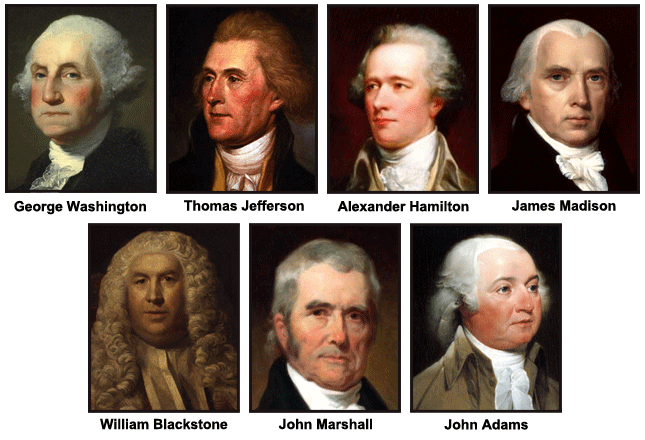

The presidency of George Washington defined the office. He established numerous precedents, or actions that will be followed by future administrations, including giving an inaugural address, asking to be called "Mr. President," and serving only two terms in office. His policies helped establish the credibility of the new government, and this service truly cemented his reputation as the "father of his country."
Jefferson served as Washington's Secretary of State and founded the Democratic-Republican Party, which opposed Hamilton and the Federalists. His party believed in strong state governments and a farmer-based republic. After the bitterness of the Election of 1800, he made an important plea in his inaugural address for national unity saying, "We are all Federalists, we are all Republicans." During his presidency, he doubled the size of the United States with the Louisiana Purchase.
Hamilton served as Washington's Secretary of the Treasury and became the founder of the Federalist Party, the United States's first political party. The Federalists believed in a strong national government and a vibrant, manufacturing and trade-based economy. After Washington left office, he would become Speaker of the House of Representatives.
Madison went from the Constitutional Convention to become a star member of Congress. He joined Jefferson's political party and served as his Secretary of State. After Jefferson served two terms, he was elected president. More an intellectual than a fighter, he became the unlikely commander-in-chief to guide the United States through the War of 1812, often called the Second War of Independence.
William Blackstone was an 18th century English legal theorist who wrote the famous Commentaries on the Laws of England that is still studied today by law students. Since the American legal system and concept of rights is based on the British system, this work became an essential reference for Marshall and other jurists in determining the law.
John Marshall was a Federalist and briefly the Secretary of State under John Adams before becoming the longest serving and most influential Chief Justice of the Supreme Court in U.S. history (1801-1835). In Marbury v. Madison (1803), he established the doctrine of judicial review.
Adams, Washington's vice president, became the second President of the United States. He shared leadership of the Federalist Party with Hamilton and fought bitterly with Jefferson and the Democratic-Republicans over policy. As President, Adams kept the United States from getting in a war with France and strengthened the U.S. navy.